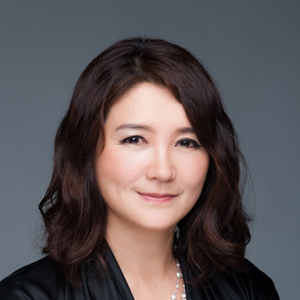Suk-Young Kim's research interests cover a wide range of academic disciplines, such as East Asian Performance and Visual Culture, Gender and Nationalism, Korean Cultural Studies, Russian Literature and Slavic Folklore. Her publications have appeared in English, German, Korean, Polish and Russian while her research has been acknowledged by the International Federation for Theatre Research's New Scholar's Prize (2004), the American Society for Theater Research Fellowship (2006), the Library of Congress Kluge Fellowship (2006-7) and the Academy of Korean Studies Research Grant (2008, 2010, 2015-2020), among others.
Her first book, Illusive Utopia:Theater, Film, and Everyday Performance in North Korea (University of Michigan Press, 2010), the winner of the 2013 James Palais Book Prize from the Association for Asian Studies, explores how state-produced propaganda performances intersect with everyday life practice in North Korea.
In her latest book “K-pop Live: Fans, Idols, and Multimedia Performance”, Suk-Young Kim investigates the meteoric ascent of Korean popular music in relation to the rise of personal technology and social media, situating a feverish cross-media partnership within the Korean historical context and broader questions about what it means to be "live" and "alive." This project traces the rapid rise of Korean popular music (K-pop) in relation to the equally meteoric rise of digital consumerism — a phenomenon mostly championed by the widespread development of high-speed Internet and the distribution of mobile gadgets — and situates their tenacious partnership in the historical context of Korea from the early 1990s to the present day.
Based on in-depth interviews with K-pop industry personnel, media experts, critics, and fans, as well as archival research, K-pop Live explores how the industry has managed the tough sell of live music in a marketplace in which virtually everything is available online. Teasing out digital media's courtship of "liveness" in the production and consumption of K-pop, Kim investigates the nuances of the affective mode in which human subjects interact with one another in the digital age. Observing performances online, in concert, and even through the use of holographic performers, Kim offers readers a step-by-step guide through the K-pop industry's variegated efforts to diversify media platforms as a way of reaching a wider global network of music consumers.
She has also published several articles focusing on the K-Pop Culture: "Black K-Pop: Racial Surplus and the Global Consumption of Korean Pop Music," TDR (Summer 2020); "Disastrously Creative: K-Pop, Virtual Nation, and the Rebirth of Culture Technology," TDR (Spring 2020); and "Looking into Asia Beyond Nation States: Pan-Mongolianism and its Specters," Verge: Studies on Global Asias (Spring 2015).
Kim is currently at work as a senior editor for the Oxford Research Encyclopedia of Literature. She also sits on the editorial board of the Journal of Korean Studies and Situations: Cultural Studies in the Asian Context.
Kim previously taught at Dartmouth College and UC Santa Barbara. She received her Ph.D. in Interdisciplinary Theatre and Drama with a Certificate in Gender Studies from Northwestern University in 2005 and her Ph.D. in Slavic Languages and Literature from the University of Illinois at Chicago in 2001.










